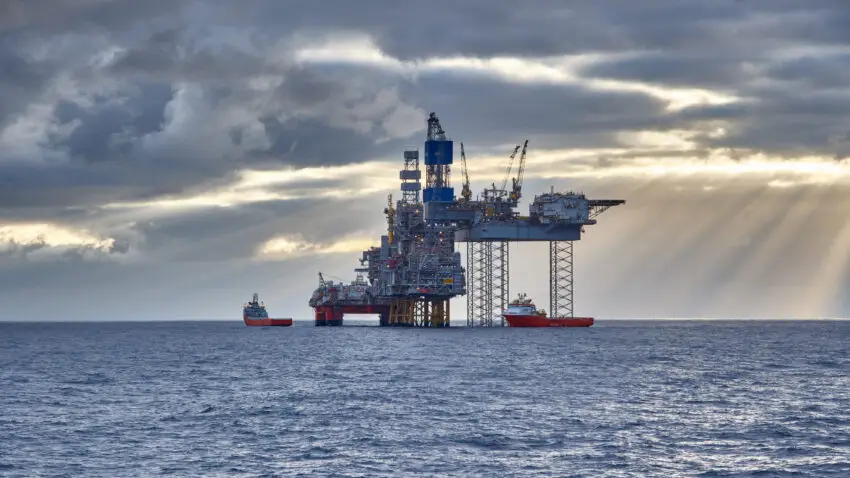The North Sea oil and gas industry is in troubled waters. Rachel Reeves’ new tax changes could be the final nail in the coffin. Meanwhile, industry leaders are ringing the alarm bells about potential job losses and investment declines.
Reeves’ Tax Raid and Its Implications
The North Sea oil and gas industry is facing a daunting time. Rachel Reeves’ significant tax changes are seen by many as the final blow. She has extended the energy profits levy by two more years, increasing the rate from 75% to 78%.
The controversial move will also remove a previous allowance that let companies deduct investments in new oil and gas fields from their taxes. This change will come into effect on November 1, though investments made before this date are untouched. However, the allowance for green energy projects remains intact.
Industry leaders are not pleased. They argue that this decision is “reckless, wrong, and economically ruinous for the North Sea”. The Aberdeen & Grampian Chamber of Commerce chief executive, Russell Borthwick, claims it will push the North Sea to ‘game over’ territory.
Impact on Jobs and Investment
There’s concern over job losses and decreased investments. Borthwick warns this decision may result in the loss of up to £20 billion in Treasury revenues. He also mentions a likely increase in reliance on imported oil and gas, which he says is worse for both the planet and the economy.
Additionally, tens of thousands of jobs are at stake. The industry fears that this policy will freeze investment and could lead to the early shutdown of older oil fields. This situation may also affect infrastructure that’s essential for both traditional and green energy projects.
Analysts’ Views on Long-term Effects
Analysts predict ‘unintended consequences’. An analysis by Wood Mackenzie suggests companies may halt investments until the tax expires. Some might even stop production on older fields prematurely and reduce their investments in green technologies.
Graham Kellas of Wood Mackenzie points out that while the tax rate is now similar to Norway’s, the lack of capital allowances and fluctuating tax rates make the UK seem like a “fiscal wild west” to investors. This instability could scare off potential investments in the future.
Prior to Labour’s election win, the levy expansion was expected to generate an additional £10.8 billion. However, with the anticipated investment freeze, these financial benefits are now in doubt.
Government’s Stance and Response
The government insists this is necessary. They believe these measures will raise significant revenue and that continuing the allowance for green projects will keep the industry moving towards sustainability.
Reeves argues that the oil and gas sector must contribute more, especially given the current economic challenges. “Taxing profits at a time of high energy prices is a fair step,” she states.
Industry Leaders’ Counterargument
Industry leaders claim this will harm the economy. Borthwick emphasises that instead of boosting public finances, the move might lead to greater economic instability.
He argues that higher taxes will deter investments and slow down the energy transition, making it harder for the UK to meet its climate goals. This sentiment is echoed by other influential figures in the industry.
Many fear that, in the long run, this policy could make the UK more reliant on foreign energy sources, putting both the economy and national security at risk.
Environmental Concerns
Despite the focus on revenue, environmentalists have concerns. Some worry that extending the tax for too long might discourage investments in greener projects.
There’s a fear that oil companies, feeling the pressure, might cut corners on environmental standards to save costs. This could risk undoing years of progress in reducing the industry’s environmental footprint.
The challenge lies in balancing economic needs with environmental responsibilities. While green investments are still deductible, the overall uncertainty might negatively impact long-term green energy plans.
Looking Ahead
The next steps for the industry are uncertain. Oil and gas companies must decide whether to continue investing in the North Sea or to scale back their operations.
Investors and analysts will be watching closely. The outcome of this tax policy might set a precedent for other sectors and influence future government decisions on taxation and environmental policies.
In conclusion, Rachel Reeves’ tax changes are sparking a storm of debate within the North Sea oil and gas industry. Industry experts warn of potential job losses, decreased investments, and a reliance on imported energy. The future remains uncertain, with significant implications dependent on industry responses and government adaptations.
This shift in policy highlights the ongoing tension between economic needs and environmental responsibilities. As the industry grapples with these changes, the broader impacts on the economy and climate goals will be crucial to monitor, shaping the UK’s energy landscape for years to come.


